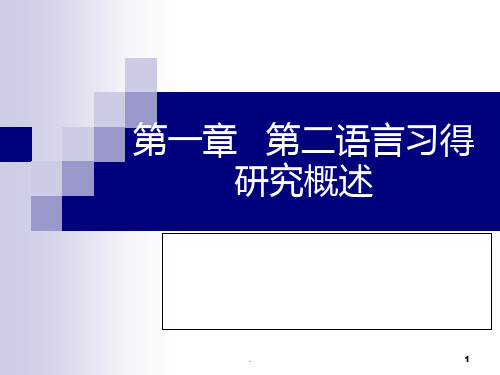2021/3/12
2
6.1 Introduction
Language mastery is not often the outcome of SLA. There is a much broader range of language proficiency achieved among second language learners than first.
2021/3/12
3
In addition to age, language aptitude, social-psychological factors, personality, cognitive style etc also explain the differential success among learners.
Factors presented in this chapter are not the only variables that influence SLA, other variables like input, instruction, L1 influence also have impact.
2021/3/12
4
6.2 Age
Some claim that SLA is the same process and just as successful whether learners begin as a child or adult or/that adults learn faster.
2021/3/12
8
Short-term studies speak only to differential rate of acquisition, not to absolute abilities. They favor older learners because of their “teach and test”, greater cognitive development and test-wiseness.





